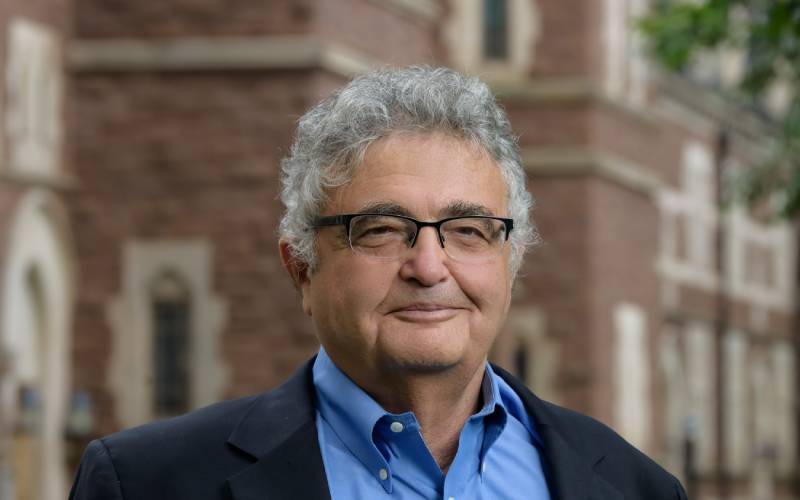“The Archive begins in 1940. The Germans themselves do not decide they are going to murder all the Jews, they don’t decide on the Final Solution until late 1941. When the archive begins, Ringelblum is creating the archive in order to do what Max Weinreich was doing with the YIVO [Yiddish Scientific Institute] – that was to get people to write about their lives, to get people to describe their experiences so as to use the knowledge gained to help the psychological and the community rebuilding after the war. ‘The war will be over, and we will rebuild our lives, what lessons will this experience have taught us?’ The way to get that information is to get people to write essays, to do interviews.”

Samuel Kassow, PhD
West Hartford
Episode Description:
We begin with the historical background that allowed for the conceptualization and creation of The Ringelblum Archive – the contemporaneous documentation by the inhabitants of the Warsaw Ghetto. The thread of psychoanalytic thinking is identified in this work through the interest in everyday living, “nothing is unimportant,” and through prior contact with Freud and analysts. We discuss the authors’ intent to define themselves through their writings to allow their own voices to be heard as distinct from those of the sadists – as in analysis, to own their own history. We consider the concept of “cultural resistance” and what it means to try “to put a stone under the wheel of history.” We close by describing the remarkable story of the uncovering of the hidden archive and the tragic end of Emmanuel Ringelblum. In addition, Sam shares with us aspects of his personal story that has led him to this labor of love.
Our Guest:
Samuel Kassow, PhD, Charles Northam Professor of History at Trinity College, is the author of many studies on Russian and Jewish history including Who Will Write Our History: Rediscovering a Hidden Archive from the Warsaw Ghetto, which was translated into eight languages and made into a film, as well as Volume 9 of the Posen Anthology of Jewish Culture, published by Yale in 2019. He was part of the scholarly team that planned the POLIN Museum of the History of Polish Jews in Warsaw and is currently engaged in a project organized by Yad Vashem in Jerusalem to write a history of the Holocaust in Poland. He has been a visiting professor at several universities including Harvard, Toronto and Dartmouth. Professor Kassow holds a Ph.D from Princeton.
Recommended Readings:
Samuel Kassow Who will write our History: Emanuel Ringelblum and the Oyneg Shabes Archive(Bloomington: Indiana University Press, 2007)
Israel Gutman, Emanuel Ringelblum: the Man and the Historian (Jerusalem: Yad Vashem, 2010)
Natalia Aleksiun, Conscious History: Polish Jewish Historians before the Holocaust (Liverpool: Liverpool University Press, 2021)
Cecile Kuznitz YIVO and the Making of Modern Jewish Culture (Cambridge University Press: 2014)
Social Science as a “Weapon of the Weak”: Max Weinreich, the Yiddish Scientific Institute, and the Study of Culture, Personality, and Prejudice Author(s): Leila ZenderlandSource: Isis , Vol. 104, No. 4 (December 2013), pp. 742-772. Published by: The University of Chicago Press on behalf of The History of Science Society
